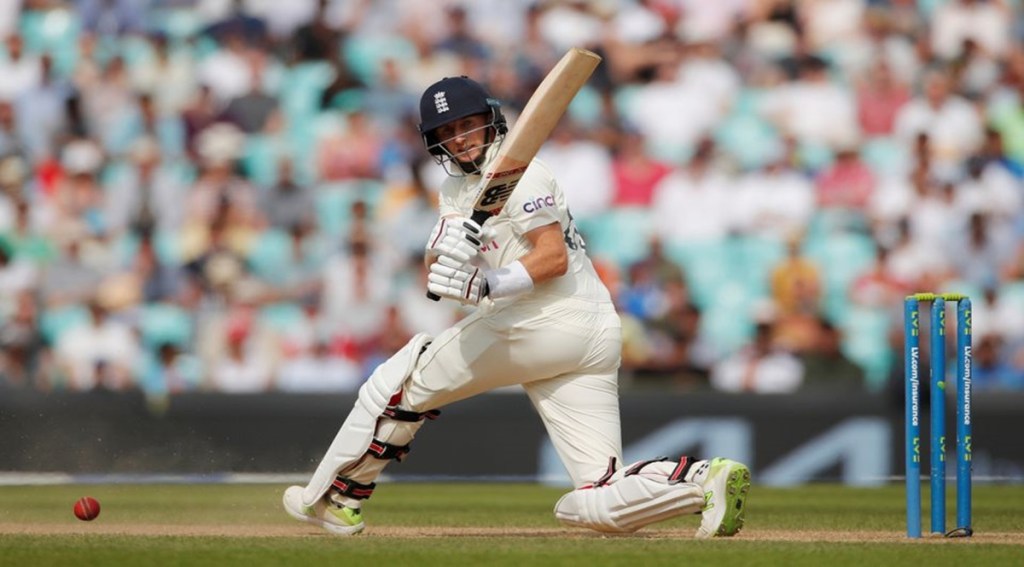England’s Test reboot is about to begin, when their three-match series starts in the West Indies from March 8. Last year was poor for Joe Root and company. They lost in India, conceded the home series to New Zealand and were trailing the five-match home series against India 2-1 before the Covid-forced postponement of the final Test at Old Trafford. The game will be played this summer.
England went to play the Ashes in Australia under-prepared and duly got a 4-0 hiding. As it happens after every Ashes defeat, the English cricket hierarchy hit the panic button.
Chris Silverwood, England’s former head coach, who tried to count the positives amid the Ashes ruins, had to go. His assistant Graham Thorpe, too, was dismissed, although it remains unclear how much his role in videoing a drinking session contributed to the ouster. Ashley Giles stepped down as the managing director of the England men’s team, with Andrew Strauss replacing him as an interim. The interim managing director has appointed an interim head coach in Paul Collingwood. Root has survived the cull in the absence of a readymade captaincy replacement.
So far so expected, but the axing of James Anderson and Stuart Board beggared belief. The two legendary fast bowlers with 1,177 Test wickets between them have been made the fall guys of the team’s serial batting implosions Down Under.
England were sent packing for 68 all out in the second innings at Melbourne. In the final Test at Hobart, they lost 10 wickets for 56 runs in the second innings, getting bundled out for 124 from 68 for no loss at one stage. The two great bowlers seemingly have paid the price for their side’s batting failure. Anderson played three Tests in the Ashes and took eight wickets at 23.37, including a 4/33. Broad also played three Tests, claiming 13 scalps at 26.30, including a fifer. Inexplicably, none of them was picked in the first Test at Brisbane, on a grassy Gabba pitch. It was the match that set the tone for the Ashes.
Little wonder then that Broad has vented his frustration. “Not to big it up too much but it has affected my sleep. I said to my partner Mollie one morning that my body felt sore. She suggested that would be stress. No, I can’t pretend I am as good as gold, because I am not. It would be wrong to act like everything’s OK,” the 35-year-old wrote in his Daily Mail column.
He added: “I took 11 wickets in the final two Ashes matches, I have been Test match standard for a long time and, for the last eight years, you would say world class.”
Anderson, meanwhile, felt like his great career could end abruptly, not on his own terms. “I’m praying this isn’t the end,” he said on the BBC’s Tailenders podcast, adding: “I have got one more go at digging deep. I have got a lot left to offer. I have still got the hunger and passion to play. It was a shock and a disappointment to get that call (from Strauss) but having processed it, it’s important I try to focus on stuff I can control and that’s showing people what I can do with the ball in my hand.”
England’s Test reboot has embraced youth, and apparently a few also-rans, at the expense of quality. The prelude to the shake-up had the customary anti-IPL vibes, as if England’s decline in red-ball cricket was down to their players participating in the Indian T20 league.
Laughable. Take the cases of Rory Burns and Haseeb Hameed, the two walking wickets in the Ashes. They won’t get into the Karnataka Ranji team, a top-order comprising KL Rahul, Mayank Agarwal and Devdutt Padikkal. There was no surprise in Pat Cummins and company taking the mickey out of the England openers in Australia. And if you put them on the IPL auction list, every franchise management probably would be amused. When after the Ashes debacle, news started to come in from the Blighty that some England players might skip this year’s IPL to concentrate on red-ball cricket, the chief executive of an IPL franchise retorted: “Makes no difference.”
Maybe, the England and Wales Cricket Board would do well to look in the mirror; why first-class is no longer played during peak summer, and also their wholehearted love for The Hundred. They should look into team selection. Apart from the illogical exclusions of Anderson and Broad, not picking Liam Livingstone for the Tests in the West Indies came from a cagey mindset. Punjab Kings bought Livingstone for a staggering Rs 11.5 crore at this year’s IPL auction, but the 28-year-old is good enough to succeed in any format, as attested by Kevin Pietersen. Livingstone is probably England’s batsman for the future across formats, if he gets the opportunity to perform.
England have one world-class batsman in Root. Ben Stokes didn’t quite look the same player in the Ashes, coming back from his mental health struggles. The team doesn’t have a proper spinner. England’s Test reboot would be incomplete without quality and right balance.


